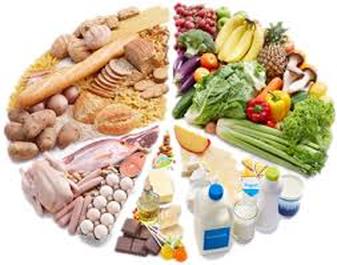 Every Track and XC season I am often asked by my runners, "Coach what should I eat before my race?" That could be a wide open question and not as clear cut as one would think but I'll try to provide some overall guidance. When we say before a race that comes in various stages. Do we mean right before the race? 2 hours before? the night before? Is this for a race in the early morning or later on in the afternoon or even at night? Are we racing a Marathon or a 1500 meter race? All factors that need to be considered carefully before throwing out a generic answer to this question. For the sake of this article we are going to focus on eating correctly before the start of a 3K to 10K race. So a 3200, a 5K, 8K and 10K race all fit into this plan. We will also assume a morning race. We will focus on 3 stages; The night before. First thing in the morning (2-3 hours before). And finally the last 30 min leading to the gun! Starting off with the night before lets consider that we are not talking about very long races. In the grand scheme of things we are talking about efforts that will last approximately 10 to 50 minutes on average. There really isn't a need to "Carbo-Load". Don't get me wrong your body will need complex carbs to perform well when that gun goes off but no need overload the body. So to the dinner the night before you should have a well balanced meal with carbs, protein, healthy fats, etc. Be careful of 3 items. Don't carbo-load as we discussed you don't need to but also many times we can't sleep well before a race due to excitement, anxiety, or good old fashion nerves. If that happens to you and you ate too many carbs or food in general you may not fully digest and wake up feels sluggish and still full which can impact your ability to perform well in that morning race. Second stay away from anything that may irritate your stomach even the night before such as tons of hot(spicy) food, dairy products, or really anything new you have never ate before. Last but not least stay away from red meat like steak. Don't get me wrong I love steak just like the next guy but one the night before will take a ton of your bodies effort to digest and believe it or not will still be trying to digest it come race time the next day. Goes without saying but water water water must be consumed the night before hopefully as part of your daily regular routine. 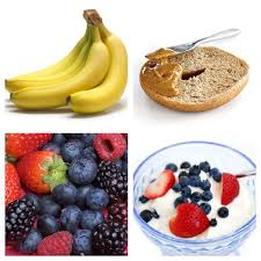 The morning of the race you need to eat 2-3 hours before your race. I know many of you are thinking or saying "I can't eat before a race I'll just drink water and eat after" This is not a good idea as overnight you converted much of the carbs you had to fat and will only have fat to burn which is not an efficient fuel to burn for a race. The longer the race the more the issue this becomes. Wake up early even if you don't have to just to eat. I know runners that get up drink water eat a small meal and go back to bed. Hey its a little weird but it works. You should eat meals very similar to what you eat for a morning long run or other runs. Nothing new even trying a new electrolyte drink the morning of is a mistake. Try anything new in training not race day. So what should you have? Start with water. You need to take in at least 2-4 water bottles worth of water early in that morning. Remember you dehydrate while you sleep not just while you run. So every morning we wake up dehydrated. Next you do need a little electrolytes but that doesn't mean a full 32 oz bottle of Gatorade. In fact water it down with the water you already need to drink and stick to 1 to 2 cups of the electrolyte drink. Which one is up to you. Last try what you know won't upset your stomach like banana, toast, bagel, other fruits, dry wholewheat cereal, etc. This will vary greatly and it has to be what works for you but you MUST eat but again never anything new so don't do what X pro-runner did last weekend do what you do last weekend and you had no issues. Finally the 30 min before. This is much more straight forward. No food at this point as it will not digest and will just sit in your stomach. Water yes but low amounts. Not really a point to hydrate more to keep you already hydrated and not having cotton mouth during the race. Electrolyte drink NOPE! Even though this is a liquid it will act similar to food in terms of having to be digested pulling need blood flow from your legs and lungs to your stomach and intestines. In longer races you may have to digest and fuel your body as you run but not here. Keep the blood meaning oxygen in the right place. Hope this has been helpful and stay tune for more useful info for all runners! As always best of luck no your running dreams!
1 Comment
Today I want to share my favorite post run meal. Easy to make and absolutely delicious! After a run of any type but especial those long runs or track workouts days you need to make sure you refuel. While there are quicker ways to do this sometimes that protein shake or bar just doesn't hit the spot. You not only want to refuel your body but also reward yourself for a job well done and what better what than with a great tasting meal. Now that doesn't mean go to your favorite hamburger joint or greasy pizza place. You can eat healthy and still love what you eat! Today we will give you the recipe for our Southwestern Chili Bean Wraps. Take 15 min to make and even less if you already have chili beans made from another meal. I love chili beans so I will make if for dinner the night before and have leftover to use for this quick meal 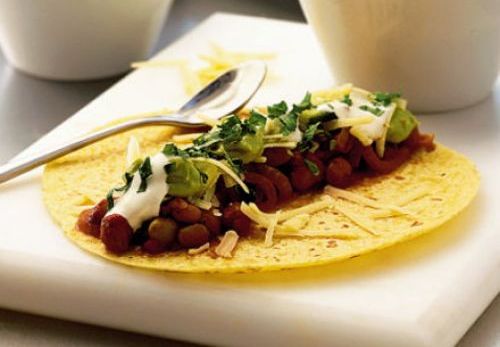 Here is what you need:
Here is how you prepare them:
Nutrition: Carbs: 52 grams Fat: 9 grams Protien: 11 grams fiber: 6 grams 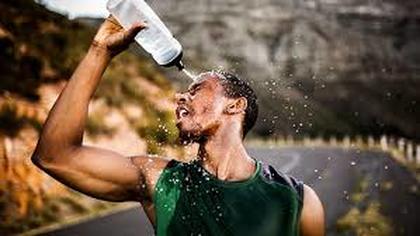 When we speak of good runner's nutrition we mention carbs and protein and a vitamins and minerals that are essential for all runners but truth is if you can make one single change in what you put in your body and what you don't put in your body water is the biggest bang for your buck! We all know that runners and truly everyone needs to stay hydrated not just to run but to live but what many don't know is to what degree proper hydration affects your performance and health. Also many runners don't realize how much we sweat out during runs and what quantities of water must be a part of our regular routine. The University of Northern Alabama conducted a study on hydration and the impact it has on performance. They tested a group of runners after a 75 minute run and had them hydrate only 75% of the water they lost during the run through sweat. This is typical of most runners we tend to drink water but not fully replenish what we lost. The next morning they had them run a 10K race for time and recorded the time. This was done another time with the same runners but the only difference was the amount of water they drank after the 75 min run. This time they took in 150% of the water lost during that run. The difference was shocking even for myself when I read the results. When runners hydrated 150% they ran over 1 min faster than when they only hydrated 75%! That's a huge difference. That can mean the difference between a bad race and huge PR or a good race and winning the race! For those that think water plays a small role take note of these results. Now the question is how much to drink. 150% hydration was probably overdone for the impact of the test but you should always replenish what you lost after every run. So you ask how do I know how much I lost. The reality is it not easy for the average non scientist runner to figure that out but one way is to weight your self right before a run then again right after. The difference is almost all water loss so you need to drink back the weight. I know if you are trying to lose weight that can be a little sad but its best for you in the long run. It will allow you to recover well and be ready for the next days workout. Of course climate and other factors play a role in this. Much of what you eat contains water so its not all about drinking 2 gallons of water after every run. He is a very general rule I tell my athletes. On average drink to 8-12 water bottles a day of water every day that you run a bit less on days off. Remember even if you didn't run we are always losing hydration even while we sleep. In fact we are most dehydrated when we first wake up so have a glass or bottle of water on your night stand to drink right away! After runs how much you drink varies with many factors such as how much you ran how hot it was and the level of effort but for simplicity sake drink 1/3 of a water bottle per mile ran. Not all at once but in the couple hours after your run. One last important fact on hydration and performance. There is a myth that as long as you hydrate well the night before a big race and on that day you will be fine. Don't be fooled by this. Hydration is cumulative and lack of proper hydration even days and weeks before a big race can impact your ability to be ready so do this as a matter or practice year round!  So you say you love to run and you love to get faster and more fit! To do this we often run more and train harder. We race more races and yes this works. As runners we also love our food.. yes we do! I'm as guilty as the next runner. I'll admit running that extra few miles just so I can indulge in a really good desert! Its a constant battle between getting more fit and eating what you love! Our Friday Blog is dedicated proving that you can get fit and faster yet still enjoy some amazing meals. We will have nutritional facts to aid runners as well as recipes so you can cook at home and even restaurant reviews that offer great runner meals that taste great! Today the topic is proper recovery meals after your runs. Its critical both for your health and for improving your performance that after any run but especially a hard workout that you refuel your body quickly and correctly. As tempting as it is to got straight for that left over pizza in the fridge, don't! and here is some info to consider. When you run or do any hard exercise you body uses the fuel in your body such as carbohydrates/fats and your muscles actually get microscopic tears. Now here is the key information you actually don't get faster during a workout no matter what type. The process of recovery is what makes a runner faster! Immediately following a workout run its critical to recovery correctly to gain the full benefits of that particular workout. Skipping a meal then would be counterproductive. As part of your workout routine make sure you leave time to recovery correctly and not rush off to work, school etc. So now the now the question is how do we recovery correctly? There are 2 key windows of time that you need to keep in mind for proper recovery. The first is 0-30 min after the workout. In many cases you may still be at the park or gym within this window of time and not be in a place to make a full meal. So its a good idea to bring with you a small snack of the proper recovery meal. We are not talking about a 7 course meal but about 100-300 calories of 4:1 ratio of carbs and protein. A perfect example is is a banana and 2 scoopfuls of peanut butter. You can also have a medium sweet potato and one inch beef jerky. These are easy to carry around with you to where ever you are running and eat before you go home or to work. for those of you that have a really hard time eat right after a run try a recovery drink just make sure it has protein as well not just carbs. A very easy one is a cup of chocolate milk but there are many made by many sport drink companies. This will kick start your bodies ability to recover and make sure you are ready for the next run! The second window for recovery is 1-3 hours after the run. By this point in time you should be in a place you can cook or at least warm up a good meal. Again we are not talking about eating more than you NEED just a good meal to restore what your body needs. This can be another 300-500 calories of mostly carbs but some protein and healthy fats are needed as well. This will fully restore your glycogen stores and continue to help your muscles heal and beyond that get stronger. You see during the recovery process your brain instructs the body to get stronger so it can not only recovery from that hard workout but get stronger (faster) so it can handle that workout better the next time. Its the body's way of protecting itself. Some great examples of recovery meals are a grilled chicken salad with avocado and salsa or chili yes chili is a great balanced meal. And of course don't forget to properly re-hydrate during this recovery time. So eat right and allow the body to do its job and allow you to get faster. Working out hard and not recovering just leaves you tired and in fact slower. Keep chasing your running dreams! |
AuthorCoach Rojas has 11 combined years of coaching experience at various levels including coaching a high school D1 State finalist team and 3 years in a row of a top 10 state ranking. He is passionate of the sport of running and loves to see new runners take up the sport! He wants to share a lifetime of running experience to all Archives
March 2018
Categories
All
|

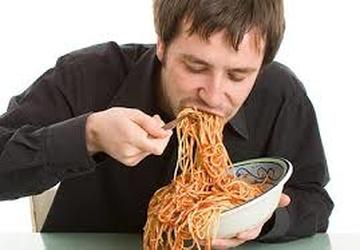
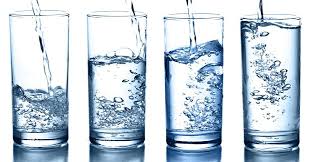

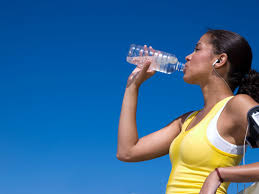

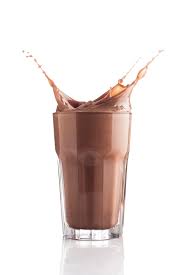
 RSS Feed
RSS Feed